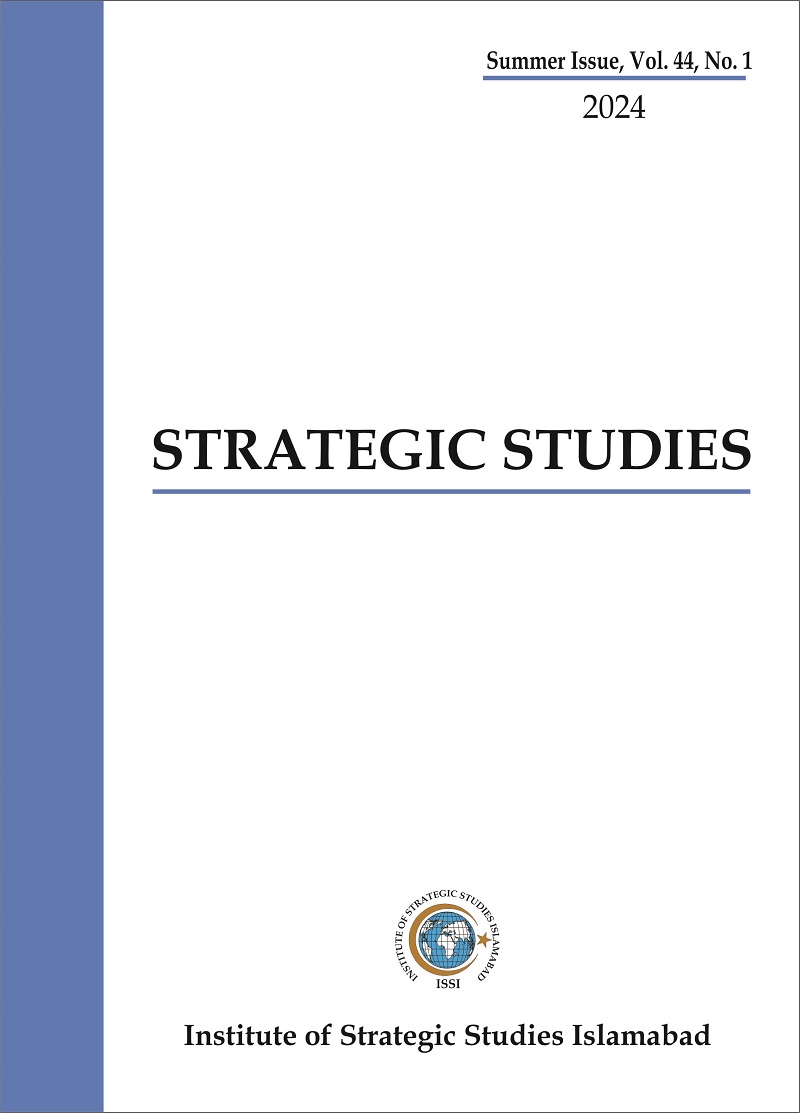From Traditional to Humane Security Challenges — Analysing Pakistan’s Response to the Poly Crisis of Covid 19
Keywords:
Covid -19, SDGs, NCOC, Pandemic, Poly Crisis, New Normal, Humane Security, WHOAbstract
For Pakistan coping with the Covid-19 pandemic, came as a polycrises coupled with critical concerns including climate change and challenged governance indicators. Characteristic of a polycrisis, human lives were not the only casualty, grappling with an economic crisis marked by slow growth, high inflation and rising debt, the pandemic could not have hit Pakistan at a worst time. The comity of nations, comprising the most powerful and mighty to the least developed stood equally challenged and affected by this pandemic. Where there was a rush in the scientific community across the globe to discover at the earliest a viable cure for this virus, the pandemic brought home several sobering realisations with regards to revisiting the notion of security, the level of preparedness by the contemporary state in addressing multiple challenges and response to threat convergence. Through this paper an attempt is made to examine the impact and consequence of rising non-traditional threats, such as the COVID-19 pandemic. The paper will further review what necessitated the early thinkers on seeking an alternative discourse on security, once realising that the classic and traditional perspective on security is no longer sufficient to answer what are now being termed faced by the state actors. Lastly, what measures and policies can be undertaken by the state at various levels of governance to incorporate and effectively deal with nontraditional security measures at a sustained level.

Published
How to Cite
Issue
Section
Copyright (c) 2024 Strategic Studies

This work is licensed under a Creative Commons Attribution-NonCommercial 4.0 International License.



